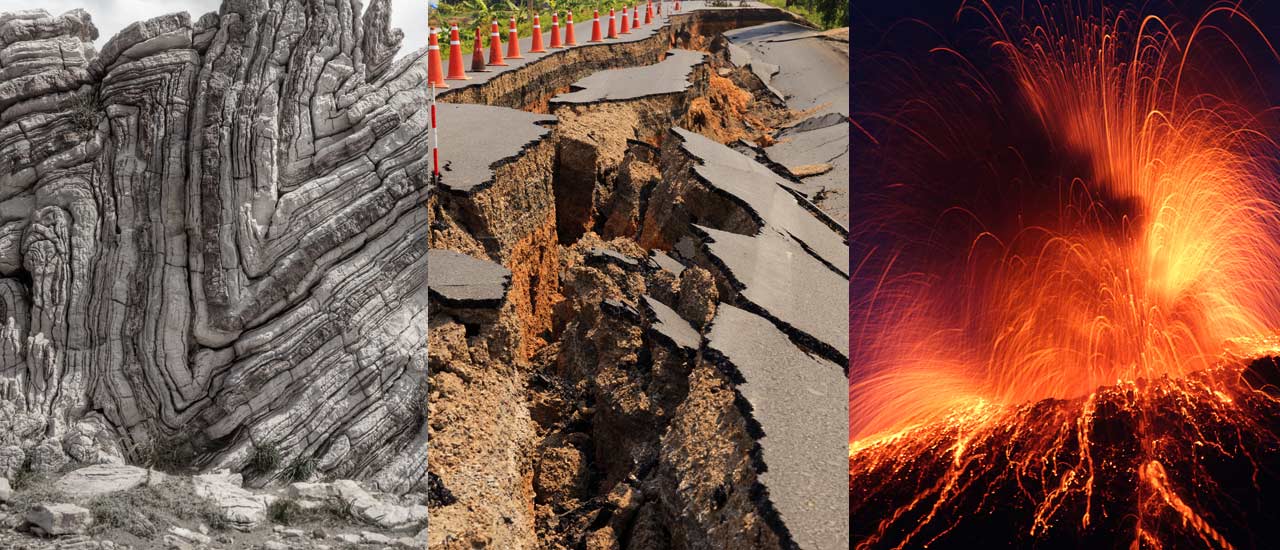
Geology is a field of Earth Sciences that studies everything about planet Earth and its contents that have existed. Geology is a group of science that discusses the properties and materials that make up the earth, its structure, processes that work both inside and on the surface of the earth, its position in the Universe and the history of its development since the earth was born in the universe until now .
Geology can be classified as a complex science, has a diverse discussion of material but is also an interesting field of science to study. This study studies from objects as small as atoms to the size of continents, oceans, hollows and mountain ranges.
Development of Geology
Geology itself can actually be said to begin around 500 to 300 years before Christ, which is based on facts followed by thoughts and statements put forward by Greek philosophers.
But geology developed into modern science about the Earth since the 17th and 18th centuries after James Hutton, a Scottish physicist, published his book Theory of the Earth in 1795. Hutton coined the doctrine of Uniformitarianism (uniformity) which states that the laws of physics, chemistry and biology that are taking place today also take place in the past.
Because of the breadth of the fields covered, Geology is generally divided into 2 (two) groups, namely:
1. Physical Geology
Physical Geology is a study that specializes in studying the physical properties of the earth, such as the composition and composition of materials that make up the earth, the membranes of air that surrounds the earth, especially the parts that adhere to and interact with the earth, then the membranes of water or hydroscopy, and processes that work on the surface of the earth that are triggered by solar energy and the pull of gravity. The processes in question can be described as weathering, erosion, removal and sedimentation.
2. Dynamic Geology
Dynamic Geology is a part of Geology that studies and discusses the properties of earth dynamics. This side is related to changes in the part of the earth caused by the forces triggered by energy originating from inside the earth, such as magma activities that produce volcanism, lithospheric motions due to convection currents, earthquakes and movements of basin formation deposition and mountains.
In the period of the 20th century, this part of geology can be said to be at the height of its development that is increasingly enchanting for earth science experts, namely by the emergence of the New Global Tectonic Concept (The New Global Tectonic) with its Plate Tectonic Theory.
This theory has caused a revolution in his thoughts and has influenced many other branches of geology such as petrology, stratigraphy, structural geology, tectonics and their implications for the formation of mineral deposits, petroleum and so on.
The Duties of Geologists
A geologist has the task of carrying out studies to reveal the mystery that still surrounds the processes associated with materials that make up the earth, the movements and changes that occur such as earthquakes and volcanic eruptions. In addition, it also seeks and tries to find materials that we need that are taken from the earth such as minerals and oil and gas.
With the advancement of civilization where many objects of human need are made that require mining materials such as iron, copper, gold and silver, then also coal and petroleum as energy sources, and because they must be taken from the earth, the Science Geology then developed as an applied science, which in this case serves as an important guide in exploration.
In addition, as the development of the inhabitants of the earth, where previously the selection of residential areas is not a problem, now the development of the region must pay attention to support for the environment determined by geological factors so that development does not damage the balance of nature. Therefore the task of a geologist in addition to what is described above, is also to study the nature of natural disasters, such as floods, landslides, earthquakes etc; predict and how to avoid it.
